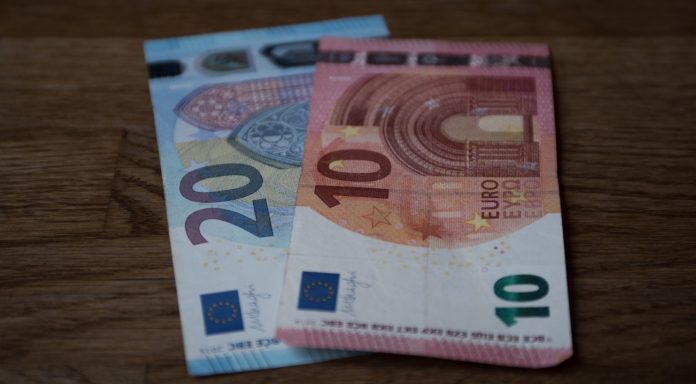The pound pushed higher versus the euro on Wednesday amid growing optimism over Brexit. The pound euro exchange rate hit a high of €1.1220 before easing to close flat on the day. The pound was losing ground in early trade on Thursday.
| What do these figures mean? |
|---|
| When measuring the value of a pair of currencies, one set equals 1 unit and the other shows the current equivalent. As the market moves, the amount will vary from minute to minute.h If the euro amount increases in this pairing, it’s positive for the pound. Or, if you were looking at it the other way around:1 EUR = 0.87271 GBP In this example, €1 is equivalent to approximately £0.87. This measures the euro’s worth versus the British pound. If the sterling number gets larger, it’s good news for the euro. |
In the second day of debating the Brexit deal, UK Prime Minister Theresa May was forced to publish her legal advice document, after being found in contempt of Parliament. The document confirmed most minister’s worst nightmare that the UK could find itself trapped indefinitely by the UK backstop. The Legal Counsel advises that the UK could be in the backstop for years or even permanently. Theresa May is desperately working on options to reassure Eurosceptic colleagues. However, with just six days until the vote in Parliament, time is not on her side.
The pound picked up on growing optimism that a hard deal Brexit will be avoided. With Parliament set to take control of the next steps should U.K. Prime Minister Theresa May’s Brexit deal be voted down in Parliament, meaning a no deal Brexit is increasingly unlikely. Minister are looking increasingly towards the softer Norway version of Brexit as an alternative.
UK Service sector data showed the extent to which Brexit uncertainty is weighing on the economy. UK service pmi dropped to 50.7 in November, down from 52.2. Analysts had predicted an increase to 52.7. This is the slowest growth in service sector activity in 28 months pointing to the UK economy losing momentum.
| Why does poor economic data drag on a country’s currency? |
|---|
| Slowing economic indicators point to a slowing economy. Weak economies have weaker currencies because institutions look to reduce investments in countries where growth prospects are low and then transfer money to countries with higher growth prospects. These institutions sell out of their investment and the local currency, thus increasing supply of the currency and pushing down the money’s worth. So, when a country or region has poor economic news, the value of the currency tends to fall. |
All things Brexit will remain key for pound traders again today.
Euro Flat As Data Fails To Inspire
The euro was broadly flat in the previous session as investors weighed up a barrage of mixed data. On the one hand service sector activity across the region grew at a faster rate than analysts had been expecting, this acted as a lift for the euro. However, on the other hand, eurozone retail sales were weaker than what analysts had been forecasting. Retail sales grew 1.7% year on year in October, below the 2% analysts forecast. Retail sales is often considered to be an indication for future inflation. Falling sales suggests futures inflation could also tick lower. Given that inflation in the eurozone has already started to decline from its peak, this news will not encourage the European Central Bank to raise interest rates.
There are no high impacting eurozone releases today. Investors will continue to eye political developments between Rome and Brussels over Italy’s excessive spending budget.
This publication is provided for general information purposes only and is not intended to cover every aspect of the topics with which it deals. It is not intended to amount to advice on which you should rely. You must obtain professional or specialist advice before taking, or refraining from, any action on the basis of the content in this publication. The information in this publication does not constitute legal, tax or other professional advice from TransferWise Inc., Currency Live or its affiliates. Prior results do not guarantee a similar outcome. We make no representations, warranties or guarantees, whether express or implied, that the content in the publication is accurate, complete or up to date. Consult our risk warning page for more details.
This article was initially published on TransferWise.com from the same author. The content at Currency Live is the sole opinion of the authors and in no way reflects the views of TransferWise Inc.





